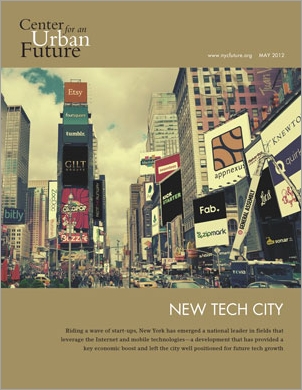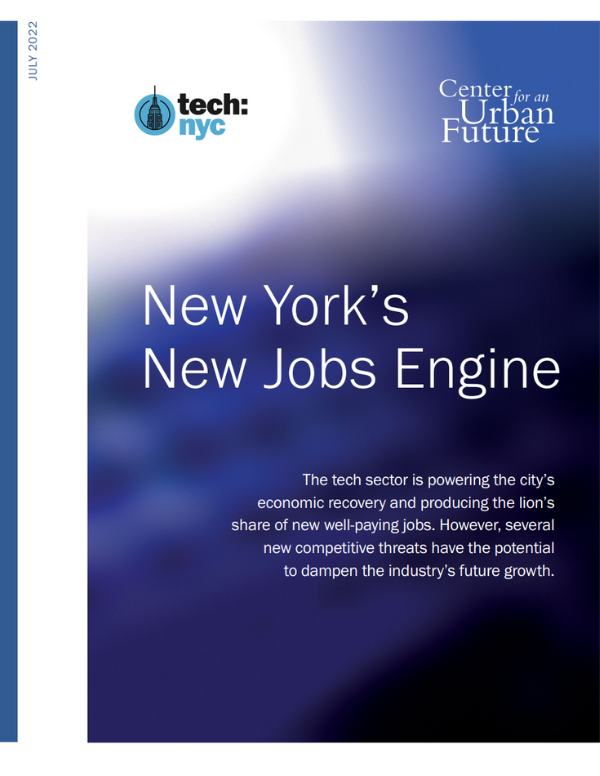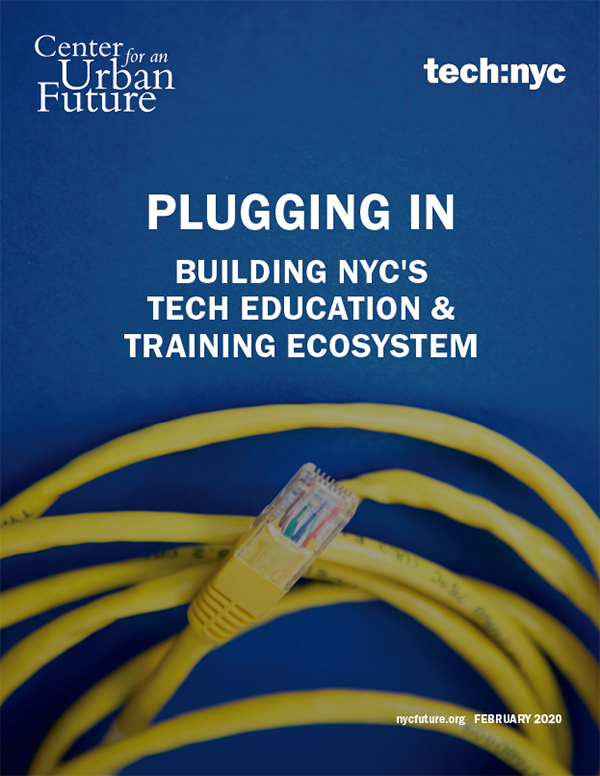There are also a number of challenges that could inhibit this sector’s future growth. Chief among them is a shortage of talent: every entrepreneur we spoke to for this report says that hiring the engineers they need is exceedingly difficult. Though far more engineers are moving to New York today than even a few years ago, it is still not enough to meet the demand as so many tech start-ups here look to add employees and large companies like Facebook and Twitter plan to greatly expand their engineering presence in the city. Connected to this is the difficulty that individuals from abroad with tech expertise have in getting the visas needed to move to the U.S. or to stay here after attending college in this country. No other city is as well positioned as New York to attract engineers or entrepreneurs from abroad, but the nation’s backwards immigration and visa policies are greatly hampering New York’s tech sector and making the companies that are here spend too much of their time and energy on immigration lawyers and filling out visa applications.
Though entrepreneurs in most parts of the city can access a fast broadband connection today, many of those we interviewed said that New York’s telecom infrastructure is well behind where it should be for a city vying to be one of the nation’s two leading technology hubs. Some start-ups that have looked for affordable space in former industrial districts outside of Manhattan have had to abandon those plans after discovering that high-speed Internet connections weren’t possible.
With every successive generation, the city is building up more of a critical mass of experienced technology entrepreneurs and talent, more mentors and more capital.
While real estate is not generally a problem today, especially given the number of incubators and accelerators offering inexpensive space, that could change quickly. Much of the tech sector’s growth has occurred in the last few years when the rest of city’s economy was barely growing; when other sectors start clicking again, space may become much harder to come by, especially for firms that are graduating from incubators. This was a major problem at the height of the last tech boom in New York City.
The good news is that Mayor Bloomberg has championed the city’s tech sector at every turn and his administration has launched an array of ambitious programs and policies to support its growth, from the creation of a new applied sciences campus on Roosevelt Island and the development of several incubators to the hiring of a chief digital officer.
There is still much work to be done to ensure that the tech sector continues on the upward trajectory of the past few years. But this report concludes that there is ample reason to be bullish about New York.
Even tech experts from the West Coast are optimistic about what’s happening here. “It’s a very opportune moment for New York,” says Anna Lee Saxenian, dean of U.C. Berkeley’s School of Information and the author of the definitive book about the development of tech clusters and the what led to Silicon Valley long-term success. “New York is extremely well positioned. The web has really opened up the door.”






